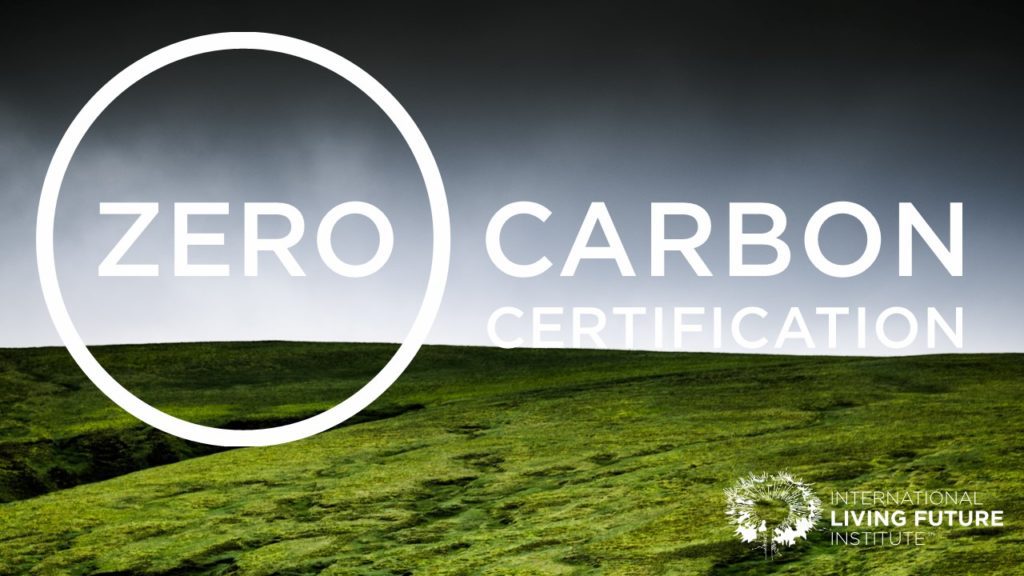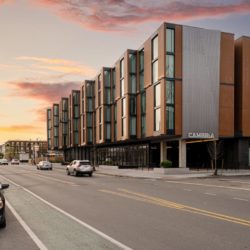
The City of Somerville and Built Environment Plus recently convened an expert panel on the benefits of Low Carbon Buildings and how cities can build more sustainably. CambridgeSeven Associate Jacob Bloom, a Living Future Ambassador and invited panel participant, discussed how projects can earn a Zero Carbon Certification from the International Living Future Institute (ILFI).
You can view the panel discussion in it’s entirety here – it’s full of actionable initiatives. Specifically, at the video mark 44:45, Jacob explains the Zero Carbon Certification program and how developments can work to achieve it.
IFLI’s mission is “to catalyze the transformation toward communities that are socially just, culturally rich, and ecologically restorative.” This is a tall order, so ILFI has created several different ways to reach that goal.
ILFI offers nine programs for buildings, products, and businesses:
- Living Building Challenge
- Living Product Challenge
- Living Community Challenge
- Zero Energy Certification
- Zero Carbon Certification
- Core Green Building Certification
- Declare
- Just
- Reveal
How to Achieve the Zero Carbon Certification
Buildings make up about 40% of global greenhouse gas (GHG) emissions which are comprised of the energy that goes into building operations as well as the embodied energy and carbon that go into erecting the building – material extraction & manufacturing, transportation of those materials to site, and actual construction.
The Zero Carbon Certification from ILFI addresses both the operational energy consumed and embodied carbon from manufacturing and construction of the project. The goal of the certification is to reduce each of those as much as possible and offset the rest. This is done with a straight-forward process of Reduce and Offset:
Step 1) Reduce building energy consumption to at least 25% below the ASHRAE 2010 baseline and eliminate new combustion on site (burning of natural gas or other fuels).
Step 2) Offset the remaining energy usage with new renewable energy on or off-site.
Step 3) Reduce the embodied carbon in primary materials. This requires a life cycle analysis for embodied carbon of the building and reducing embodied carbon by at least 10%.
Step 4) Offset the remaining embodied carbon by purchasing verified carbon offsets.
Why should companies invest in the Zero Carbon Certification?
Additional efforts like these certification requires buy-in from project stakeholders, especially the people funding the project, since an initiative like this often means more up-front costs. But there are huge payoffs for those willing to put in the extra investment.
- For 12 months after occupation, ILFI will review the energy use of the building for the owners and ensure that the energy being generated from the renewables is offsetting 100% of the energy used by the building. This way, building owners get third party verification that their investment is performing as it was designed.
- A lot of progressive, successful companies use programs like the Zero Carbon Certification to boost their brand and generate industry recognition. This kind of initiative helps build trust in their brand and attracts more consumers who are increasingly aware of their own environmental footprints.
- In addition to increased marketing value, building owners and operators can create positive financial returns when building Zero Carbon Certified projects through reduced utility bills and government incentive programs.
People sometimes think that the zero carbon programs are only suitable for small projects because large projects inherently use more energy and materials. However, this certification is scalable to buildings of all sizes by encouraging the use of renewables on and offsite and includes exceptions for special circumstances such as commercial kitchens, labs and pre-existing infrastructure. This kind of flexibility makes the certification attainable to any project scale, type, or climate region
It’s exciting to see cities like Somerville strive to build more sustainably and ethically and we’re grateful to have passionate professionals like Jacob to help guide the way to a future of better building. To see and read the recent interview we did with Jacob and to learn more about the International Living Future Institute, check out this blog post.



